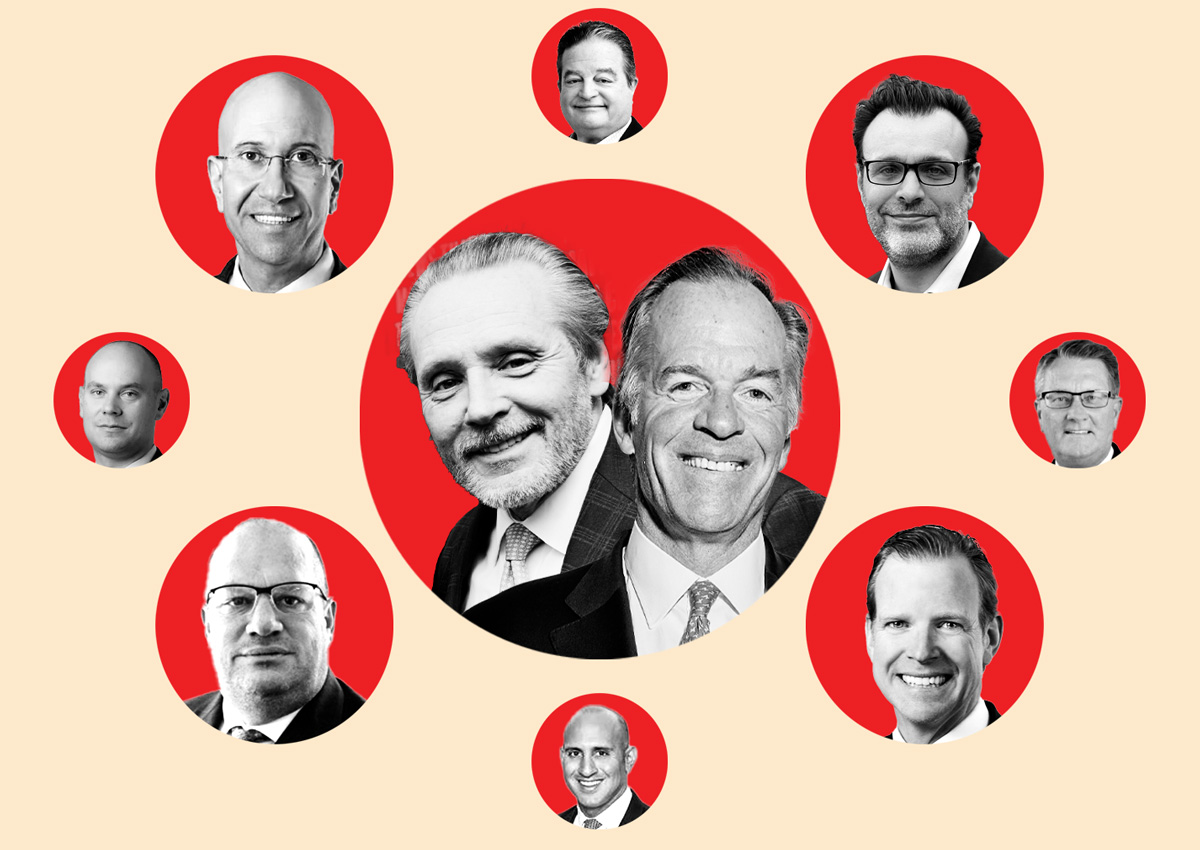One of the deans of New York commercial brokerage is facing a mounting pile of financial troubles, both professional and personal.
Paul Massey, the founder and CEO of B6 Real Estate Advisors, owes roughly $2 million in federal, state and city taxes, according to court records reviewed by The Real Deal. Massey is also fighting to stave off foreclosure on his Westchester home, is behind on over $350,000 in credit card debt and is struggling to make B6’s lease payments on its Midtown digs.
The pandemic, remote work and the Federal Reserve’s interest-rate hikes were a body blow to the commercial real estate business. But at least some of Massey’s predicaments predate them.
In an interview, Massey said the slow market was the primary cause for the financial distress, and said he was confident he can right the ship.
“We’ve been hit by a lot but we’re working to clear it all up,” he said.
Massey and his former partner, Bob Knakal, sold their previous firm, Massey Knakal Realty Advisors, to Cushman & Wakefield for a reported $100 million in 2014. He briefly ran for mayor in 2016 before starting B6 two years later.
As a private firm, the depths of B6’s financial stresses are unclear. But a handful of court cases shed some light.
The IRS placed a $1.2 million tax lien against Massey’s assets in November 2020. That followed a $725,00 tax lien by New York state a few months earlier. Late last year, New York City placed a $36,000 lien.
The city also put a $32,000 lien on B6 in 2022, around the time the brokerage was behind on space it subleases at 1040 Sixth Avenue.
B6 subleased the space from HR software firm DHI Group starting in 2018 at a monthly rent of more than $58,000. But the brokerage failed to make the full payments between February 2020 and August 2021, according to a lawsuit by DHI seeking more than $1 million in back rent.
And while the period covered by the litigation roughly coincides with the start of the pandemic, DHI alleges the nonpayment predates it.
“These arrears started prior to the Covid emergency. They missed payments prior to that period,” the company’s attorney said at a March 2022 hearing, court documents show.
Court records show the two sides reached a settlement in June 2022.
Massey is also trying to prevent foreclosure on his home in Larchmont, about an hour north of the city. He and his wife bought the 3,500-square-foot, four-bedroom home in 2016 with the help of a $1.6 million mortgage from Wells Fargo.
The bank filed to foreclose in November, claiming the homeowners failed to make payments starting in February 2020. Massey claimed the banks’ figures were inflated. The two sides appear to be working toward a settlement.
A Westchester court entered a $350,000 judgment against Massey in November after his credit card provider, American Express, sued earlier in the year alleging he had defaulted on his agreement and owed his card balance.
In the cards
Massey has faced tough times before.
A few years after he and Knakal launched Massey Knakal in 1988, the two found themselves in the thick of the savings and loan crisis. The freeze on deals meant no income was coming in, and they were stuck with overhead of about $15,000 a month.
In what is now industry lore, the two bootstrapped their way back into the black.
“We looked to each other and said, ‘What the heck do we do now?’” Knakal recounted at an industry event a few years ago. “What we discovered was that we both had really good credit. So we went around to every bank in town and we got a $2,000 credit card at this bank and a $4,000 credit card at that bank.”
“Without credit cards, [Massey Knakal] would’ve been out of business in ’90,” Knakal added. “The lesson there, always maintain good credit.”
The duo built the firm into one of the city’s most powerful investment-sales shops, famous for its territory system. Massey handled operations, while Knakal was the rainmaker, becoming one of the city’s top multifamily brokers.
After selling the company in late 2014 to Cushman, they took on senior executive roles at the mega-brokerage. But the marriage didn’t last long.
Massey, who was rumored to be feeling rudderless inside Cushman’s bureaucracy, announced in 2016 that he would challenge incumbent Mayor Bill de Blasio in the following year’s election, running on the Republican ticket.
He raised $3 million for his campaign and lent it another $2.7 million. But the effort didn’t garner him enough support, and was dogged by a perception that he was spending too much on consultants looking to score big from a political novice.
Read more


“No one takes me for a ride,” told the New York Times after abruptly dropping out of the race in 2017. “No one took me for a ride.” He later told Politico that the issue with his campaign was not his spending, but difficulty fundraising.
“It’s always the revenue, it’s not the expense,” he said.
By the end of the campaign, Massey was openly questioning whether he would return to Cushman. He left in 2018. (Knakal had an acrimonious exit the same year and is now at JLL.)
That same year, Massey launched B6 Real Estate Advisors (an acronym for “Building by Building, Block by Block”) and filled it with Massey Knakal alumni.
But B6 struggled with high overhead, sources said, including a hefty payroll and big investments in data operations. It did a round of layoffs early in the pandemic, like many of its peers.
The 2019 rent law changes have been a major impediment to the sales of rent-stabilized buildings that B6 focused on, and rising interest rates have crippled almost all other parts of the sales and mortgage businesses.
